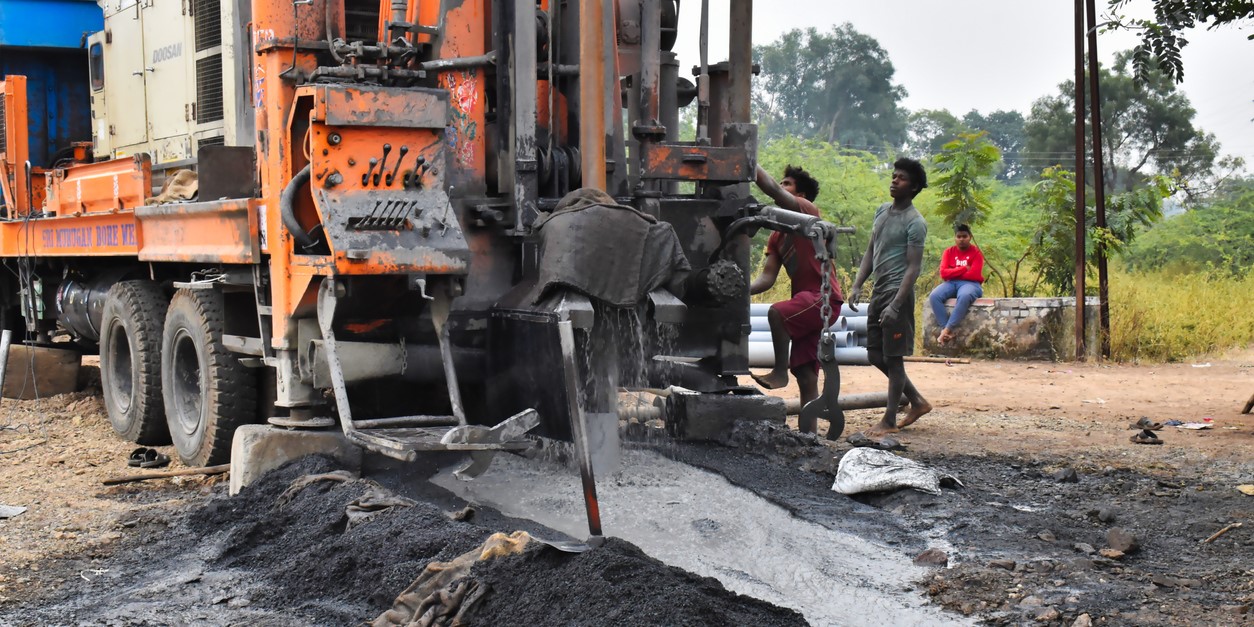DK Shivakumar said on 11 March that the state had not witnessed such a severe drought in the past three to four decades.

Legal action against drilling unauthorised borewells in Bengaluru: BWSSB. (iStock)
Amid acute water shortage in parts of Bengaluru, Deputy Chief Minister DK Shivakumar said on Monday, 11 March, that Karnataka had not witnessed such a severe drought in the past three to four decades. He added that the next two months are “very important.”
The administration is making all efforts to manage the crisis and supply water to the citizens, he said, adding that steps have been taken to control the water “mafia” in the city.
Amid the water crisis, the Bangalore Water Supply and Sewerage Board (BWSSB) has said it will take legal action against those drilling unauthorised borewells within the city limits.
Starting 15 March, people can seek permission for drill borewells by submitting their applications on the official website of the Board and approval will be granted based on on-site inspection by the concerned officials, it said.
BWSSB said in an order that before drilling borewells for personal or other use in Bengaluru city, it is mandatory to obtain permission from concerned authorities as per section 11 of Karnataka Ground Water (Regulation and Control of Development and Management) Act, 2011.
It cited the lack of adequate rainwater as a reason for the decline in groundwater level and said many borewells in the city have dried up.
Officials also suspect that the groundwater level in the city is also decreasing due to the “unscientific drilling” of borewells.
According to the order, borewells should be drilled only in those places where the concerned authorities have granted permission and if they are done in unauthorised places, legal action will be taken as per rules.
The order comes just days after BWSSB banned potable water usage for non-essential purposes — cleaning vehicles, construction of buildings and roads, entertainment purposes or decorations like fountains — in Bengaluru and stated that violators would be fined ₹5,000.
Malls and cinema halls are permitted to use potable water only for drinking, according to the 7 March order.
#BengaluruWaterCrisis :
Amid the acute water shortage in #Bengaluru, Deputy Chief Minister @DKShivakumar said on Monday the State had not witnessed such a severe drought in the past three-four decades."In the last 30-40 years we had not seen such drought; though there was… pic.twitter.com/P88iPi30qn
— South First (@TheSouthfirst) March 11, 2024
“In the last 30-40 years we had not seen such drought; though there was drought earlier we had never declared such a large number of taluks as drought-affected,” Shivakumar told reporters in Bengaluru.
Shivakumar, also in charge of Bengaluru development, said wherever Cauvery river water has to be supplied in the city, it is being done, but out of 13,900-odd borewells in Bengaluru, about 6,900 have become defunct.
“So to control the situation, we have arranged for tankers to supply water. Bruhat Bengaluru Mahanagara Palike (BBMP) and Bangalore Water Supply and Sewerage Board (BWSSB) are making all efforts in this regard,” he added.
Karnataka has declared drought in 223 out of 240 taluks, out of which 196 are categorised as severely drought-affected.
Alleging that the Opposition (BJP-JD(S) combine) was trying to indulge in politics over the issue, Shivakumar said the administration has on its part made efforts to control the water “mafia”, and provide water by taking it from private borewells, and also rates have been fixed based on distance travelled by the water tankers.
“A separate online system has been brought in for this and officials have been appointed to oversee this,” he added.
Stating that the next two months are “very important,” Shivakumar, who is also the Water Resources Minister, said the priority is to ensure that there is no waste of water.
“(By implementing) Cauvery fifth stage (project) — we will make all efforts to provide Cauvery water to 110 villages (around Bengaluru) at the earliest by May last week,” he said.
To control the water “mafia”, more than 1,500 private water tankers have registered so far and time has been extended for others also to register till March 15, Shivakumar further said. Police, Regional Transport Office (RTO), BBMP and BWSSB will monitor it and there will be a board with registration number on tankers.
“Operating illegally and charging exorbitantly ₹5,000 or ₹6,000 (per tanker of water), such things are going on. To control, its price has been fixed based on the distance travelled,” he noted.
In Bengaluru, Ramanagara, Magadi, Doddaballapura, Hoskote and surrounding areas, there are irrigation borewells, he said, adding that “we have taken a count of them, to draw water from there if an emergency arises.”
“In the last 30-40 years we had not seen such drought; though there was drought earlier we had never declared such a large number of taluks as drought-affected,” he told reporters in Bengaluru.
“Wherever Cauvery river water has to be supplied, (it) is being done, but out of 13,900 odd borewells in Bengaluru, about 6,900 borewells have become defunct,” he said.
Shivakumar said the government has taken “things under its control” and arranged tankers to supply water.
(With PTI inputs)
(Edited by Muhammed Fazil)

Jul 27, 2024

Jul 26, 2024

Jul 26, 2024

Jul 26, 2024

Jul 26, 2024

Jul 26, 2024